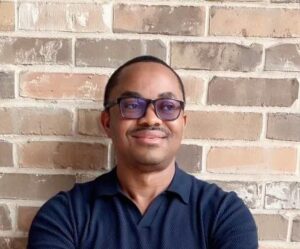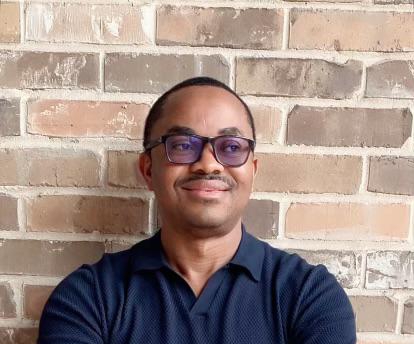In Africa, we like to revel in the notion that we are the last bastion of moral conservatism, standing firm while the West descends into moral anarchy. We view their societies as unmoored, decadent, and irreverent, while ours remain sanctuaries of divine order. This illusion is often reinforced by the sheer omnipresence of churches, which dot every street corner of our lands like monuments to our piety. Yet, beneath this façade of righteousness lurks an unsettling reality: societies riddled with corruption, overrun by kidnappers, ritualists, and criminals who render our cities uninhabitable, forcing an exodus of our best minds, some so desperate that they are willingly to brave perilous seas, enslavement, and even death to escape.
At an event recently, I met a young couple who passionately shared their plan to send their children back to Nigeria for their high school years. Their vision resonated with a possibility my wife and I once entertained, though various circumstances kept that dream at bay. While many, including this couple, firmly believe in the inherent supremacy of Nigeria’s moral values as the driving force behind such efforts, our perspective differs. Ours is rooted in the value of cultural immersion for our little ones navigating dual identities.
In Africa, we like to revel in the notion that we are the last bastion of moral conservatism, standing firm while the West descends into moral anarchy. We view their societies as unmoored, decadent, and irreverent, while ours remain sanctuaries of divine order. This illusion is often reinforced by the sheer omnipresence of churches, which dot every street corner of our lands like monuments to our piety. Yet, beneath this façade of righteousness lurks an unsettling reality: societies riddled with corruption, overrun by kidnappers, ritualists, and criminals who render our cities uninhabitable, forcing an exodus of our best minds, some so desperate that they are willingly to brave perilous seas, enslavement, and even death to escape.
If Africans are indeed the custodians of morality and values, while the West wallows in debauchery, why then do we flee in such large numbers from the supposed sanctity of our idyllic lands to seek refuge in the very societies we denounce? What does this reveal about us that we abandon our self-proclaimed utopia in pursuit of solace among those we deem lost?
For many in our homeland, religion is not merely a belief system but an untouchable sacred edifice, shielded from scrutiny by an almost instinctive reverence. To question its tenets is, for many, tantamount to blasphemy. And when one dares to highlight the paradox, that those who first imposed these Christian and Muslim faiths upon us now practice them with far less rigors, such observations are often dismissed with an impatient wave of the hand.
The Bible tells the story of an omnipresent, omniscient and all-loving God who sent his only begotten son to be tortured and brutally executed. Why? To atone for a sin we did not commit (original sin) but was passed down from Adam and Eve simply by virtue of being born. A sin that an omnipotent God could have forgiven in an instant, without bloodshed, if he so wished. Yet, instead of simply absolving humanity, he chose to sacrifice his own son to appease himself.
And what was this great transgression? Adam and Eve, our forebears, were deceived by Satan, another of God’s creations, over whom He has dominion. The logic is dizzying, and if your head is spinning, you are not alone. This tale has been told to us so many times, so ingrained in our consciousness, that we dare not question it. But this essay is not about questioning the existence of God or any other divine being. Rather, it seeks to challenge the intellectual complacency of doctrinaire custodians of religious beliefs who cling to medieval explanations for life’s greatest mysteries.
An answer conceived in an era when human knowledge was in its infancy is still being propagated and presented to 21st-century Millennials and Gen Z, generations with far more inquisitive minds and little allegiance to dogma to accept as unvarnished truth. The issue is that the glaring inconsistencies often crumble under the weight of reason, making them increasingly difficult to uphold. Any wonder why today, many are peeling away and embracing the alternatives?
One of the most insidious tools of subjugation has always been the conquest of the mind. The Bible, for all its profound philosophical and ethical wisdom, was not introduced to Africa solely as a conduit for salvation, it was an indispensable weapon in the colonial arsenal. To subdue a people, one must first dismantle their intellectual sovereignty, conditioning them to perceive inquiry as heresy, dissent as defiance, and blind submission as the pinnacle of virtue. Once the mind has been subdued, the body offers no resistance.
There is the story of young artist, renowned for his technical skill and mastery of classical techniques, traveled to the mountains to seek the wisdom of an old painter known for creating breathtaking works of art.
The artist had spent years perfecting his craft, studying under great masters, memorizing every rule of composition, and replicating the works of history’s most celebrated painters. Yet, despite his talent, he felt uninspired, his work lacking life and depth.
Upon arriving at the master’s secluded studio, the young artist bowed respectfully and said, “Master, I have studied every great painting, practiced tirelessly, and mastered every technique. Yet, my work feels empty. I seek your wisdom to help me paint with true soul.”
The old painter smiled and gestured toward a blank canvas. “Before we begin, paint something for me.”
Eager to impress, the young artist immediately set to work, applying each stroke with precision, layering colors exactly as he had been taught. When he finished, he stepped back, expecting praise.
The master studied the painting, then silently picked up a brush and dipped it in thick black ink. Without hesitation, he swept his brush across the canvas, covering the entire painting in dark, heavy strokes.
The young artist gasped. “Master, why did you ruin my work?”
The master set down his brush and looked at him calmly. “You did not come to learn; you came to confirm what you already know. Your mind is crowded with rules, techniques, and expectations. But true art is not in the knowledge you hoard, it is in the space you create for something new to emerge.”
The young artist stood in stunned silence. He had always believed that mastering art meant accumulating more skills and techniques. Yet, in that moment, he realized his greatest obstacle was his own certainty. He had been so focused on what he had learned that he had left no room for creativity, spontaneity, or true expression.
Galileo Galilei, an Italian astronomer and luminary of the Renaissance, championed the heliocentric theory, asserting that the Earth and other planets orbit the Sun. His position starkly contrasted with the prevailing geocentric worldview endorsed by the Catholic Church at the time. His observations, facilitated by the telescope, provided compelling empirical evidence that challenged traditional cosmological beliefs.
The tension between Galileo and the Church culminated in his trial by the Roman Inquisition in 1633. Accused of heresy for advocating ideas deemed contrary to Scripture, Galileo was compelled to recant his views and spent the remainder of his life under house arrest. This episode not only underscored the profound conflict between emerging scientific inquiry and established religious doctrine but also marked a pivotal moment in the gradual shift toward modern scientific thought.
So the question remains: How many of today’s unquestioned “truths” will be exposed as fallacies tomorrow?
History teaches us that knowledge evolves, but dogma resists. The real question is, will we choose to evolve with it, or remain shackled to the comforts of inherited belief?
This lesson reveals a profound truth: To create, we must first unlearn. Mastery is not about rigidly following rules, it is about knowing when to let them go. The more we cling to what we know, the less space we leave for discovery, growth, and originality.
Like a full canvas covered in paint, a mind crowded with preconceptions has no room for new inspiration. Only by embracing uncertainty, questioning old beliefs, and letting go of the need for control can we truly create something meaningful.
The paradox of knowledge lies in the fact that the more we learn, the more we become acutely aware of the vastness of our ignorance. The tragedy of faith, however, is that it often bars the door to the Galileos of the world. Only those humble enough to acknowledge their lack of understanding can truly attain wisdom.
Understanding, in part, is knowing what must be unlearned. The most direct and reliable route to authentic knowledge is to dismantle false assumptions, challenge entrenched beliefs, and approach life with curiosity rather than the certainty of preconceived notions.
We tend to navigate life with minds cluttered by judgments, biases, and past experiences. Yet, true wisdom is not about accumulation, but about clearing space for new insights.
This essay is not an indictment of faith but rather a plea for introspection. True spirituality should not cower before critical thought; it should thrive in its presence. If we are ever to reclaim our collective destiny, we must first reclaim the faculty of reason, the courage to question, to challenge inherited dogma, and to construct a moral framework that is authentically our own, rather than one imposed upon us by those who once sought our subjugation.
Osmund Agbo is a medical doctor and author. His works include, Black Grit, White Knuckles: The Philosophy of Black Renaissance and a fiction work titled The Velvet Court: Courtesan Chronicles. His latest works, Pray, Let the Shaman Die and Ma’am, I Do Not Come to You for Love, have just been released.


